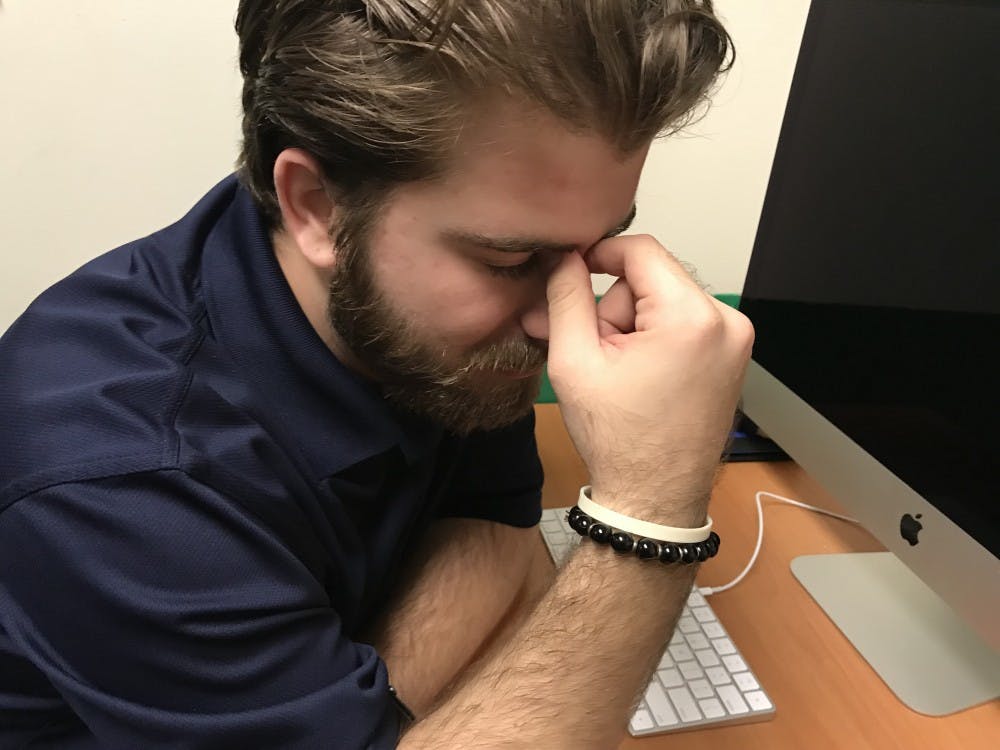Having finished the first month of the Fall 2018 semester, Kean students have fully eased into another school year filled with stress and responsibilities. It is imperative that students acquire good coping mechanisms that will help them to continue steadily toward success.
First, students should know that not all stress is bad stress. Stress will always be present in situations that require a person to improve themselves and to achieve an ambition. Thus, students should not withdraw from their responsibilities or life goals. Rather, students should focus on best managing their stress and their perception of stress to maximize the results and benefits of their work and outcome.
To start, students should observe which symptoms of stress are normal for their person and which ones emerge under more subtly intense situations. For example, under conditions with normal stress, such as the morning commute, a student may listen to more upbeat music to fend off their worry, whereas when that same student has three tests to study for later at night, they may not realize that their depressing thoughts, physical fatigue, change in sleeping habits, sense of isolation and irritability is their body's reaction to this more intense level of stress.
Knowing one's specific reaction to certain situations can help students to start learning how to prevent or adapt their reactions to minimize any paralyzing expressions that cause them to procrastinate or under perform.
Gabriella Lapointe, the vice president of programming for Greek Senate, said, "Stress management is really important for students to practice because stress takes time away from the mind and body because it has to attend to the thing that is stressing the student out. Stress takes energy away from other important functions of one's brain such as concentration."
More typical sources of stress that college students share are relationships, test anxiety, time management and physical wellness. Some ways to reduce the affects of these types of stressors include eating healthy, exercising, performing self-care, therapy, writing, yoga, arts and crafts and more. Lapointe is especially fond of meditating with YouTube videos. Students can explore a variety of options to find their own favorite coping mechanism.
This past week, Greek Senate has been holding a variety of events for students in light of World Mental Health Day which falls Oct. 10 every year.
"It is a day for global education on mental health, awareness and advocacy against the social stigma of mental illnesses," Lapointe said.
Manifestations of stress may need professional help in order to be properly addressed, and students should not feel ashamed about reaching out. Kean University has many resources in place to assist students including the following:
Kean Counseling Center
- located in Downs Hall, Room 127
- call (908) 737-4850
Student Health Services
- located in Downs Hall, Room 126
- call (908) 737-4880
- email hsnurses@kean.edu
Kean University Police
- located in the Police Station attached to Downs Hall, across from Whiteman Hall
- call (908) 737-4800 or 911
- email kupolice@kean.edu
Office of Residential Student Services
- call (908) 737-6800
Student Support Services Advocate
- located in Downs Hall, Room 126
- call (908) 737-4880







